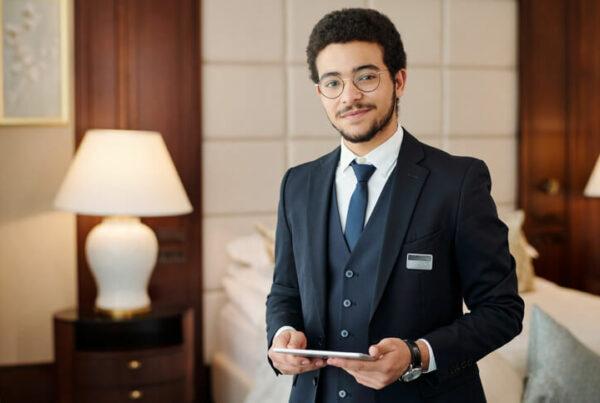In January 2020, Dreamgrow reported that there are about 3.48 billion social media users currently, a number that is 288 million more than last year. This is why it is increasingly true that the way to conduct marketing campaigns in the competitive tourism industry is to invest time in developing a brand presence on social media platforms.
Leveraging social media and understanding how these platforms have changed interactions between customers and businesses is now an important part of standing out. Today, customers will Tweet about their experience with an airline, or post on Instagram about a hotel. Keep reading to learn how to harness social media’s momentum and connect it to your career in tourism and hospitality.
Understanding Your Customers Through Social Media
One of the key advantages of enrolling in a hospitality program is experiencing a hands-on approach to customer-oriented marketing. This is especially important with respect to social media because it has become the main source of information for customers planning their travels. The days of the guidebooks and travel agents are not gone, but travellers now have many more options to consider.
Location tags and hashtags make it possible for consumers to see a place from the perspective of another likeminded traveller or a local easily. Also, the majority of millennials will use peer reviews to help them plan travel activities. This gives professionals the opportunity to learn a lot about what potential clients are looking for and devise unique campaigns to cater to target interests. For example, you can see what kinds of posts generate the most engagement and then develop relevant and responsive strategies.
Direct Messages, Mentions, and Hospitality Training For the Win
Once you understand the ways in which your target customers use social media, you can apply the knowledge gained in your hospitality training to provide excellent customer service. According to Smart Insights, 90% of social media users have used a social media platform to get in touch with a business or brand, and at least 63% of users expect to get customer service through these interactions.

It’s critical to boost positive mentions and provide quick solutions for complaints
The way that customers contact a business is crucial. Did they mention or tag the business’ account? Did they send a direct message? Either way, the response must be quick. Also, in the case of mentions and tags, it is wise to remember that consumers are smart and know their role in helping you advertise for your business. Both positive and negative mentions require responsive attention.
Sharing and Rewards Programs
It’s true customers know their role and often expect an exchange through social media. That’s why throughout your hospitality career you can encourage a mutually beneficial relationship. You do not have to wait for customers to tag or “@” you. In fact, your business accounts should be actively seeking engagement. Starbucks retweets customers, Whole Foods posts recipe tips, Toms’ cross-platform approach highlights their “buy one give one” mission.
Beyond regular activity, creating hashtags and designing sharing and rewards programs will help increase shares and exposure of your hospitality business on social media. For example, a hotel might offer current customers a free drink or tickets to a local attraction for a review on Facebook. Airlines might create a loyalty program, while other businesses might make a donation to a charity for every share. Ultimately, this is an exciting time for hospitality professionals because you can build a community and engage with your customers while on your career journey.
Ready to take the next steps?






